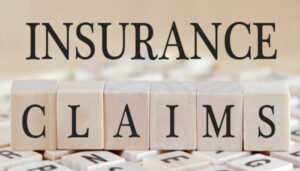Car insurance is required by law to provide drivers with financial protection in the event of theft, collision, or other unexpected events. However getting car insurance can be difficult because there are many coverage options, deductibles, and premiums to consider. Here are seven key tips for drivers to make smart choices and get the most out of their car insurance:
1. Understand Your Coverage Needs:
Anúncios
Before you get car insurance, you should think about what coverage you need. Think about things like how much your car is worth, how you drive, and how much you make. Check whether you need comprehensive coverage or collision coverage. Comprehensive coverage protects against things like theft and crime that wouldn’t occur in an accident, while collision coverage pays for damage caused when your car hits another vehicle or object.
2. Get Quotes from Multiple Places:
Choose the second or third car insurance plan you see. Shop around and get prices from multiple insurance companies. Rates can vary widely between insurance companies, as each has its own pricing and underwriting rules. When comparing insurance companies, don’t just look at their rates. Also check their coverage limits, deductibles, and any promotions or extras they offer.
3. Consider Portfolio Policies:
Many insurance companies will give you a discount if you take out more than one policy (such as home and car insurance) with them. Bundling your plans can save you money on premiums and make managing your coverage easier by bringing all your coverage under one company. When you receive quotes from insurance companies, ask if bundling can save you money.
4. Keep your Driving Records Clean:
Your driver’s license has a major impact on the cost of your car insurance. People with clean driving records usually get cheaper rates, while people with accidents or traffic violations may have to pay more. To keep your rates as low as possible, drive safely, obey the rules of the road, and avoid car accidents and speeding tickets.
5. Choose a Larger Tax Benefit:
The amount you must pay out of pocket before your insurance starts paying out. This is called your deductible. If you choose a higher deductible, your monthly premiums will be lower, but you will have to pay more upfront if you need to make a claim. Before choosing a payment method, look at your budget and decide how much you can pay out of pocket in the event of an accident.
6. Check your Insurance Coverage Regularly:
Your insurance needs to change as you change. Assessing your car insurance coverage should be something you do once a year or whenever a major life event occurs, such as buying a new car, or moving or adding a new driver. If necessary, change your security measures to ensure that you are always adequately protected.
7. Use Coupons to Save Money:
Insurance companies offer various offers to help drivers save on premiums. Some of these discounts are for people who are a safe driver, a good student, own more than one vehicle, and have safety features such as anti-theft devices and anti-lock brakes. Make sure you ask your insurance company about offers, and if you can get one, use it to lower your insurance costs.
Conclusion
These seven tips can help you make smart choices about your coverage and ensure you get the right protection at an affordable price. Not only is car insurance required by law, but getting it is a good idea as it protects you and your car on the road and gives you peace of mind.
FAQs
1. What is the coverage of car insurance?
Car insurance is an agreement between you and your insurance company that provides you with financial protection if your car is damaged, stolen, or stolen in an accident. If your car is involved in an accident, it can help pay for repairs, medical bills, and insurance claims.
2. Why do I need insurance for my car?
In most places, you will be required to purchase auto insurance to protect yourself, other drivers, and pedestrians in the event of an accident. It can protect you financially from the high costs of repairing or replacing your car, as well as medical bills and legal fees resulting from a car accident.
3. What types of car insurance are there?
Different types of car insurance cover different things. Liability insurance compensates you for the damage you cause to others in the event of an accident. If your car is damaged or stolen, collision and comprehensive coverage can help you pay for the cost of repairing or replacing your car. Medical payment coverage, uninsured/underinsured motorist coverage, and personal injury protection (PIP) may also be available as additional costs.
4. How much do I have to pay for car insurance?
This depends on factors such as the value of your car, how you drive, and your financial situation. How much car insurance do you need? As a starting point, most states require you to purchase liability insurance. However, you may want to take out additional insurance to better protect yourself in the event of an accident.
5. How do you calculate how much car insurance you need to pay?
Your age, driver’s license, where you live, the type of car you drive, and the policy limits and deductibles you choose all affect how much you pay for car insurance. People with clean driving records and who are considered lower risks tend to pay lower prices. People with documented accidents or traffic violations may have to pay higher fees.
6. Is it possible to get cheaper car insurance?
There are many things you can do to save on car insurance, such as getting multiple quotes from different insurance companies, keeping your driving record clean, getting discounts, and bundling your plans with the same company. Additionally, driving a safe, low-risk car can help lower your insurance rates.

